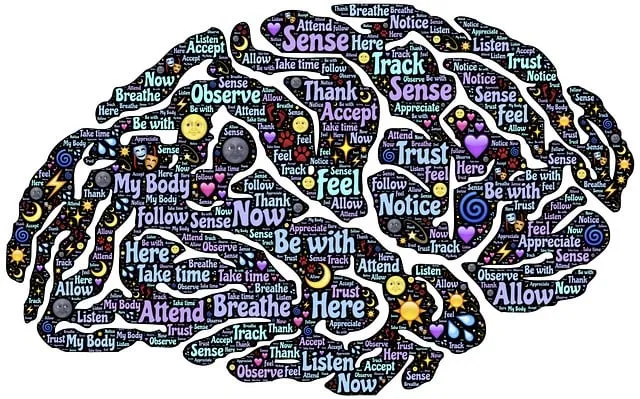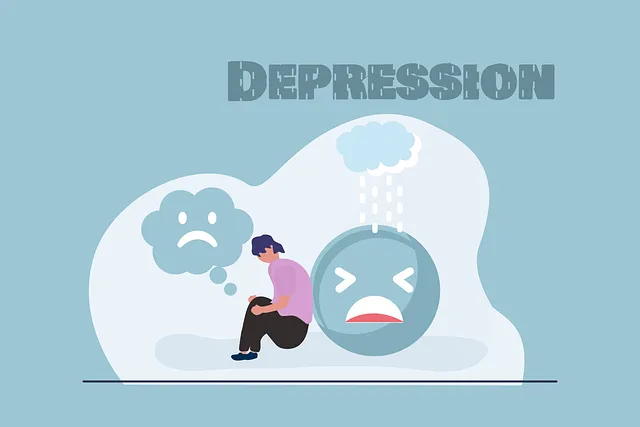Media portrayal significantly influences societal perceptions of mental health, with accurate and positive representations fostering empathy, reducing stigma, and encouraging early interventions (Aurora Kaiser Permanente mental health coverage). Conversely, negative or stereotypical depictions can perpetuate misconceptions and deter access to resources. Aurora Kaiser Permanente is taking a proactive stance by enhancing their mental health coverage through increased visibility and partnerships with advocates and experts. They aim to challenge stigma and encourage help-seeking behaviors by showcasing diverse narratives and real-life experiences of individuals with various mental health conditions. By collaborating with media outlets, they create empathetic narratives that promote resources for stress management, confidence-boosting, and coping skills, fostering a more supportive and inclusive community.
In today’s media landscape, accurate representation of mental illness is crucial for fostering positive mental health perceptions. This article delves into the significant impact of media portrayal on public understanding of mental health, highlighting challenges and potential solutions. We explore successful initiatives like Aurora Kaiser Permanente’s approach to enhancing mental health coverage, offering strategies for empathetic and precise depiction in the media. Additionally, we discuss the power of collaboration between media outlets and mental health advocates to drive better awareness and positive change.
- Understanding the Impact of Media Portrayal on Mental Health Perception
- Aurora Kaiser Permanente's Approach to Enhancing Mental Health Coverage
- Strategies for Accurate and Empathic Mental Illness Representation in Media
- Fostering Positive Change: Collaborating with Media for Better Mental Health Awareness
Understanding the Impact of Media Portrayal on Mental Health Perception

Media portrayal plays a pivotal role in shaping societal perceptions about mental health. The way mental illnesses are depicted in films, television shows, and news media can influence how viewers understand and interpret these conditions, potentially impacting their own experiences and the support they seek. Positive representations that accurately portray individuals with mental health challenges can foster empathy and reduce stigma, encouraging open conversations and early interventions. Conversely, negative or stereotypical portrayals may perpetuate misconceptions, leading to misinformed judgments and a reluctance to access available resources, such as Aurora Kaiser Permanente’s comprehensive mental health coverage.
Understanding the impact of media is crucial for promoting accurate representation. By recognizing how these narratives affect public perception, creators can strive for authenticity in their content. Encouraging self-care practices and emotional intelligence through media platforms can contribute to burnout prevention, ensuring that discussions around mental health are not only informative but also empowering.
Aurora Kaiser Permanente's Approach to Enhancing Mental Health Coverage

Aurora Kaiser Permanente recognizes the significant impact that media representation has on shaping societal attitudes towards mental health. In response to this challenge, they have adopted a proactive approach to enhancing their Aurora Kaiser Permanente mental health coverage. This involves not only increasing visibility but also promoting accurate and sensitive storytelling about mental illness. Through collaborative efforts with mental health advocates and experts, the organization aims to foster resilience building within communities by presenting diverse narratives that challenge stigma and encourage help-seeking behaviors.
Their strategy includes implementing mental illness stigma reduction efforts by showcasing real-life experiences of individuals navigating various mental health conditions. By doing so, they cultivate an environment of compassion and understanding, ultimately encouraging open dialogues about mental wellness. Additionally, Aurora Kaiser Permanente incorporates compassion cultivation practices into their media initiatives, ensuring that the content not only informs but also inspires empathy and support for those affected by mental illness.
Strategies for Accurate and Empathic Mental Illness Representation in Media

Media has a powerful influence over public perception, and accurate representation of mental illness is crucial in combating stigma. To achieve this, content creators should prioritize authenticity and consult with experts like those from Aurora Kaiser Permanente’s mental health coverage services. Incorporating real-life stories and diverse narratives can humanize conditions that are often misunderstood. Portraying characters with nuanced experiences, including the challenges and strengths they face, fosters empathy among viewers.
Designing Mental Health Education Programs or producing Mental Wellness Podcast Series around these topics can further enhance understanding. By combining storytelling with educational content, media platforms can promote mental health awareness and provide valuable Stress Reduction Methods. This approach ensures that audiences not only gain insights into different mental health issues but also learn practical ways to support themselves and others.
Fostering Positive Change: Collaborating with Media for Better Mental Health Awareness

In the fight against mental illness stigma, collaboration between healthcare providers and media outlets is a powerful tool for driving positive change. Aurora Kaiser Permanente’s commitment to mental health coverage plays a significant role in this effort by ensuring that stories and narratives surrounding mental health are accurate and empathetic. By partnering with media professionals, they can help shape public perception and foster a more understanding society. This collaboration encourages the creation of content that goes beyond stereotypical representations, offering a platform for diverse voices and experiences related to mental health challenges and recoveries.
Such partnerships enable the promotion of resources and initiatives aimed at stress management, confidence-boosting, and coping skills development. Through joint efforts, media can contribute to breaking down barriers by presenting real-life stories that reflect the wide range of mental health journeys individuals experience. This approach not only increases awareness but also provides valuable insights into effective strategies for managing and overcoming mental health issues, ultimately contributing to a more supportive and inclusive community.
In conclusion, the impact of media portrayal on mental health perception cannot be understated. By implementing strategies for accurate and empathetic representation, such as those championed by Aurora Kaiser Permanente, we can significantly improve public understanding and reduce stigma. Collaborating with media outlets to enhance mental health coverage is a crucial step towards fostering positive change, ensuring that individuals suffering from mental illness receive the support and compassion they deserve. Through these collective efforts, we can create a more inclusive and supportive society for everyone.






